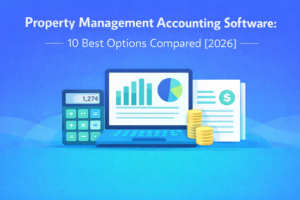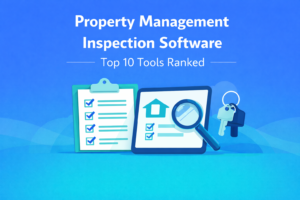
Investing in real estate can be a smart financial decision but comes with challenges and considerations. One important factor to remember is the impact of vacant service fees on your real estate investment.
These fees are sometimes overlooked, but they can significantly affect your bottom line, whether you’re an experienced property owner or a new investor.
Vacant service fees, also known as vacancy fees or maintenance fees on vacant properties, are charges that property management or homeowners’ associations impose on unoccupied properties. These fees cover the costs of maintaining common areas, providing security, and offering essential services within a development or community.
To help property owners and investors navigate this complex issue, we’ve compiled a comprehensive guide that explores the intricacies of vacant service fees and their impact on real estate investments.
Understanding Vacant Service Fees
To fully understand the implications of vacant service fees, knowing what they are and how they work is important.
Property management companies or homeowners’ associations usually charge vacant service fees to property owners. These fees apply when units or homes remain unoccupied for an extended period.
The calculation of these fees can vary. Usually, it covers expenses such as security measures, landscaping, and general maintenance of shared amenities, like pools, gyms, or community spaces. These fees are due to the ongoing costs of maintaining a development or community among all property owners, even if some units are vacant.

Understanding the terms and conditions specified in your property’s governing documents is crucial. Homeowners’ associations usually provide detailed information on the specific conditions that trigger vacant service fees and the corresponding charges.
Familiarizing yourself with these terms can help you plan for potential fees and take proactive measures to minimize their impact.
The Financial Impact on Property Owners
When a property is vacant, property owners can face significant financial consequences due to service fees. These fees result in lost rental income and add additional costs to the owner’s expenses. Therefore, the economic impact of vacant service fees on property owners is substantial and complex.
- Loss of Rental Income
One of the most significant financial effects of a vacant property is the loss of rental income. In the world of real estate investment, a steady cash flow is crucial for maintaining profitability and covering mortgage payments. When a property remains unoccupied, it becomes a financial burden instead of a source of revenue.
- Accumulation of Vacant Service Fees
In addition to the loss of rental income, property owners must contend with accumulating vacant service fees. These fees can accrue over time, significantly impacting the property’s financial performance. Property owners should know the fee structure outlined in their agreements with property management or homeowners’ associations and plan accordingly.
- Diminished Property Value
Vacant properties can also experience a decline in value over time. The lack of regular maintenance and the perception of neglect can decrease the property’s overall market value. This not only affects the property owner’s equity but also poses challenges when attempting to sell or refinance the property.
- Strategies to Minimize Vacant Service Fees
As property owners and real estate investors navigate the challenging landscape of vacant service fees, implementing effective strategies becomes paramount. Minimizing the impact of these fees requires a proactive approach and a comprehensive understanding of the factors that contribute to their imposition.
- Timely Property Management
To minimize vacant service fees, it’s essential to have timely property management. Regular upkeep of your property, even when unoccupied, is crucial in presenting a well-kept appearance. This enhances the property’s marketability and prevents fees related to neglect or deterioration from accumulating.
To streamline the property management process, engaging with a reliable property management service is beneficial. Property managers can conduct routine checks, address maintenance issues promptly, and keep the property in optimal condition, which reduces the likelihood of incurring additional vacant service fees.
Strategic Tenant Acquisition and Retention
A proactive approach to tenant acquisition and retention is pivotal in minimizing vacancies. Property owners should focus on attracting long-term, reliable tenants. Offering competitive rental rates, maintaining open communication, and promptly addressing tenant concerns can increase tenant satisfaction and the likelihood of lease renewal.
Incentivizing longer leases or providing lease renewal discounts can also be effective strategies. Property owners can avoid periods of vacancy and associated service fees by minimizing tenant turnover.
Diversify Income Streams
Reducing reliance on a single income stream, such as rental income, can serve as a buffer against the financial impact of vacant service fees. Consider diversifying your property’s usage, exploring short-term rentals, or incorporating commercial elements like co-working spaces or retail, depending on the property’s zoning and regulations.
Implement Competitive Rental Pricing
It’s crucial to stay competitive in the rental market to attract tenants and minimize vacancies. You should regularly evaluate local rental market trends and adjust rental prices accordingly.
By offering competitive rates, you can increase your property’s appeal and reduce the time it remains unoccupied. You should also consider offering incentives such as one month of free rent or utilities in the lease. These strategies can help you attract tenants quickly, which in turn can mitigate the financial impact of vacant periods.
Financial Planning for Vacant Periods
Lastly, prudent financial planning is crucial for weathering vacant periods without significant financial strain. Set aside a reserve fund specifically for covering vacant service fees and other associated costs during periods of unoccupancy. Having a financial cushion in place allows property owners to navigate challenging times without compromising their overall investment strategy or succumbing to financial stress.

Long-Term Planning and Risk Mitigation
To make successful real estate investments, you must plan for the long term and manage your risks smartly.
Start by examining your property lineup carefully. Check the rental income, expenses, and any extra fees charged when the properties are empty.
Identify any underperforming properties and consider making some changes, such as upgrading the property or hiring new management to increase profits.
Diversify your portfolio by investing in different types of properties and locations to spread out economic risks. Invest wisely in residential, commercial, or industrial properties for a well-rounded mix. To stabilize your finances, consider creating steady income streams beyond rent through crowdfunding or development.
Stay flexible by monitoring market trends and adjusting your game plan as needed. Ensure you have solid insurance coverage for property damage, liability, and vacancies—plan by having clear exit strategies and backup plans for surprises to prepare you for tough times.
Conclusion
Taking a proactive and strategic approach is essential when dealing with vacant service fees in real estate. Property owners can minimize financial impact by managing their properties promptly, retaining tenants, diversifying their income streams, and pricing their units competitively.
To achieve long-term success, investors should conduct comprehensive portfolio analysis, diversify their investments, create sustainable income streams, adopt adaptive strategies, mitigate risks through insurance, plan for clear exits, and engage with their local community.
By understanding the nuances of vacant service fees and implementing these strategies, investors can optimize their portfolios, reduce risks, and achieve sustained success in the dynamic realm of real estate investment.
Table of Contents
Stay Updated
Subscribe to get the latest news, industry trends, blog posts, and updates...




